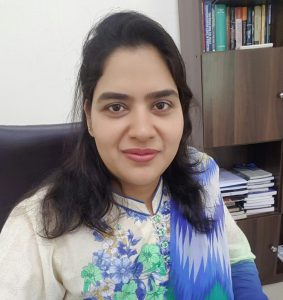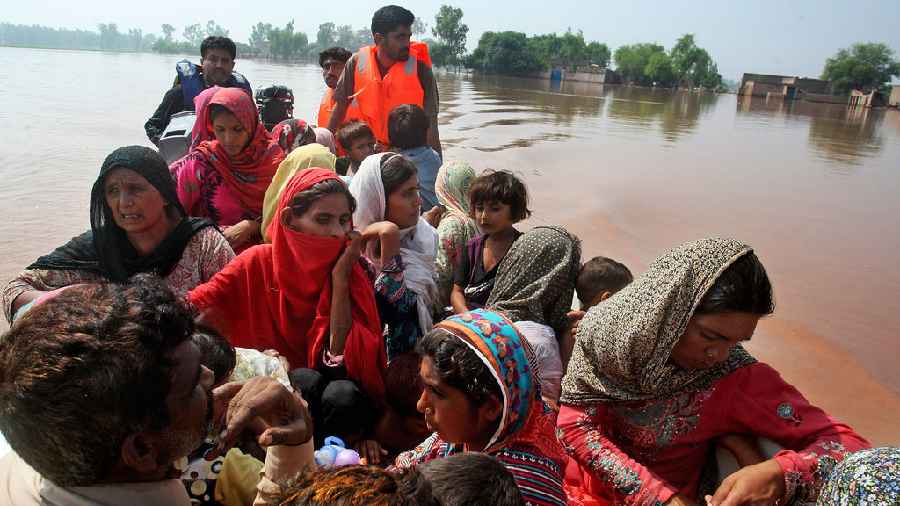Dr Lubna Zaheer
The International Day for the Elimination of Violence against Women is celebrated on November 25. A sixteen day campaign (sixteen days of activism) is also held with this day. This 16-day cycle starts from November 25 and ends on December 10. December 10 is the International Human Rights Day. This integration may be a sign that women have all the same human rights as men. Therefore, the rights of women should be respected. Pakistan is also a signatory to the relevant UN charter.
This is the reason why we organize celebrations for this day. Various activities are organized at official and non-official level during these 16 days. Along with women, men also pledge to ensure women’s rights and end crimes against them. The activities like colorful gatherings and events also take place on March 8 — the Women’s Day — as commitment to ensure the women’s rights. These are all encouraging indicators. It is also very gratifying that in the last two or three decades there has been a lot of legislation in the field of women’s rights. If researched, a long list of laws can be compiled. However, Pakistan is among the highly legislated countries of the world, there are a lot of laws, and there is hardly any case, on which there is no law.
The real problem isn’t the laws, but their implementation. For example, the constitution of Pakistan clearly states that no one can be discriminated against simply on the basis of gender or sex. Our religion Islam also emphasizes women’s rights. Despite this, women are exploited in Pakistan and violence and other crimes against them continue to happen. The perception of Pakistan in respect of women’s rights isn’t very good in the world. When there is a new incident of crime against women, the perception of Pakistan being a conservative country Pakistan deepens.
Although the ‘bitter’ reality is the same situation exists all over the world. Despite presence of prevailing laws, incidents of violence are increasing. United Nations Secretary-General Antonio Guterres has affirmed that “human rights are the most widely violated in the world.” Those are the rights of women and girls. And that every eleven minutes a girl or woman is killed by her husband or a family member.” The research also revealed that the incidents of violence against women have increased manifold during the period of Covid pandemic. Digital media is also a source of harassment of women. There are countless incidents of online harassment every day. According to a study, nine out of 10 women experience online harassment.

Nowadays, various activities are continuing in connection with the 16-day activism campaign related to the International Day for the Elimination of Violence against Women. I also had the opportunity to attend a few events. It was good to hear the discussion about women’s problems and their solutions. While hearing these words, my attention was drawn to the millions of women who have been forced to live a life of poverty due to the devastating floods for the past several months. During the activism campaign and celebrating the International Human Rights Day, we should also keep in mind the difficulties and problems of these women and efforts should be made to reduce these problems.
It is a pity that our media mentioned the flood victims for a few weeks. But now, getting involved in political games, we have forgotten the flood-affected families. No one knows what their condition is and whether they are getting any help or not. Their houses were destroyed in the flood, and till now they might haven’t got shelter. We should also know that women’s problems in natural calamities multiply due to gender vulnerability. They need protection along with food, medicine, etc.
Various research reports on natural disasters in different countries of the world too show that women’s problems are more than men’s. There should be special measures for them in case of natural calamities. The flood data from various sources revealed that women accounted for a large number of deaths due to rains and floods. Because of their gender, the women also faced certain kinds of problems. For example, there have been reports of pregnant women during floods. According to a data, more or less 700,000 women were pregnant during floods. About 70,000 women were very close to motherhood. Of course, many children would have been born by now. Imagine the difficulties these women had faced. Those who have gone through the process of giving births, could fully understand the physical and psychological condition of these pregnant women surrounded by floods. This condition of women requires special attention.
Sadly, incidents of sexual assault and harassment continued to surface even during the catastrophic floods. In the 2005 earthquake, many ugly incidents including sexual crimes against women took place. Women surrounded by flood might also have faced these problems. A few months ago, the Population Council — a non-governmental organization — released a report involving the Punjab province. According to the data of the report, nearly 100,000 pregnant women in the province urgently needed medical care and safety measures before, during and after childbirth. In addition to women, children and the elderly were also mentioned in the report. Allah Almighty knows best what is happening to these pregnant women, children and the elderly people.
May we remember the citizens and especially the women who were forced to live a miserable life during and after the floods while celebrating women’s and human rights day. It’s our duty to remind governments, national media and various governmental and non-governmental organizations that flood-affected citizens and especially women still need their attention and assistance today.

— The author is an academician and political analyst
Disclaimer: The views expressed in this article are those of the author and do not necessarily reflect the official policy or position of Lahore Mirror

